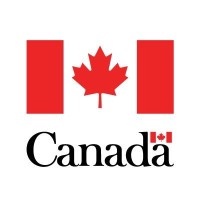
Open
Energy Innovation Program — Clean Fuels Call for Proposals
Last Update: November 10, 2025
Canada
Advances clean fuel technologies for environmental sustainability
Grant and Funding
At a glance
Funding available
Financing goals
Research and experimental development
Reduce the ecological footprint
Conduct research
See more
Eligible Funding
- Maximum amount : 10 $
- Minimum amount : 500,000 $
- Up to 75% of project cost
Timeline
- Closing date : January 20, 2026
Eligible candidates
Eligible Industries
- Utilities
- Transportation and warehousing
- Professional, scientific and technical services
- Other services (except public administration)
- Public administration
Location
- Canada
Legal structures
- Non-profit
- Public or Parapublic institution
- For-profit business
Annual revenue
- All revenue ranges
Organisation size
- All organization sizes
Audience
- Indigenous Peoples
- Canadians
Non-profit candidates
Sector of operation
- Research
- Environment
- Economic, Social and Community Development
- Business Associations
- Diversity and Inclusion
Target groups
- Indigenous peoples
- Rural / Remote communities
- Business owners / entrepreneurs
- Nonprofits / charities
Revenue structures
- All structures
Scope
- Regional
- Provincial
- National
Overview
The Energy Innovation Program — Clean Fuels Call for Proposals supports the development of innovative pre-commercial clean fuels-related technologies in Canada, with a maximum funding amount of up to $10 million. The program aims to fund activities such as research and development, pilot projects, and demonstration projects focused on clean fuel production, transport, and storage.
Activities funded
- Development and demonstration of innovative pre-commercial clean fuels-related technologies.
- Pre-commercial development, enhancement, and pilot or demonstration testing of innovative technologies related to the production of gaseous or liquid clean fuels.
- Pre-commercial research and development of clean fuels transportation and storage solutions.
Examples of admissible projects:
$ 90,000
Implementing sustainable energy solutions for local businesses
Eligibility
- Applicants must be legal entities validly incorporated or registered in Canada.
- Eligible entities include for-profit and not-for-profit organizations, provincial and territorial governments, and Indigenous organizations.
- Indigenous recipients may include Indigenous communities, governments, and organizations majority-owned and controlled by Indigenous people.
- University spin-offs are eligible if they are separate legal entities from academic institutions.
- Applicants can work with project partners who provide in-kind or financial contributions, including those from non-eligible entities.
- Projects must focus on the development and demonstration of innovative pre-commercial clean fuels-related technologies.
- Project activities can take place outside of Canada but must provide significant tangible benefits to Canada.
- Projects must start at a Technology Readiness Level (TRL) of 4-8.
- Projects already receiving funding from other NRCan programs may be ineligible.
- Eligible projects include those improving cleanness and functionality of transport and storage solutions for clean fuels.
Who is eligible?
- For-profit organizations incorporated or registered in Canada
- Not-for-profit organizations incorporated or registered in Canada
- Indigenous communities or governments
- Tribal Councils or entities that perform similar functions
- National or regional Indigenous councils or tribal organizations
- Indigenous for-profit or not-for-profit organizations with majority Indigenous ownership and control
- Provincial and territorial governments and their departments and agencies (Focus area 2)
Eligible expenses
- Salaries and benefits for employees on the payroll of the Recipient for the actual time spent by the employees on the project.
- Training and workshops.
- Professional, scientific, technical, and contracting services.
- Travel expenditures, including meals and accommodation, based on National Joint Council Rates, adjusted to reflect costs in Northern and remote areas, where appropriate.
- Capital expenditures such as the purchase, installation, testing and commissioning of qualifying equipment, materials and products, including diagnostic, testing tools and instruments, and original equipment manufacturer equipment warranty (including extended warranties where deemed appropriate to mitigate risk and lack of capacity).
- Laboratory and field supplies and materials.
- Printing services and translation.
- Data collection services, including processing, analysis, and management.
- Facility costs for seminars, conference room rentals, etc. (excluding hospitality).
- Construction insurance.
- Accreditation.
- License fees and permits.
- Honoraria.
- Field testing services.
- Overhead expenditures, provided they are directly related to the conduct of the project and can be attributed to it, up to a maximum of 15% of Eligible Expenditures. These include administrative and corporate support provided directly by the Recipient's employees, routine laboratory and field equipment maintenance, and office operating expenses directly related to the project.
- GST, PST, or HST, net of any tax rebate to which the Recipient is entitled.
Selection criteria
- Innovation and originality of the project proposal, specifically in clean fuels production and transport/storage technologies.
- Feasibility and clarity of the implementation plan, including the articulation of how partnership roles and contributions will support project success.
- Alignment with the Energy Innovation Program's strategic goals, particularly regarding net-zero emissions and the expansion of clean fuels use in challenging areas like heavy transport and industrial processes.
- Potential environmental and economic impact, emphasizing the reduction of carbon footprint and lifecycle carbon intensities of clean fuels.
- Integration and demonstration of inclusion, diversity, equity, and accessibility (IDEA) principles within the project framework and among stakeholders involved.
- Extent of collaboration and partnerships formed, with emphasis on diverse organizations and cross-sectoral cooperation.
- Value for public spending and the plan for knowledge dissemination, including how project results will be shared and benefit Canadian society.
- Ensurance of intellectual property management and strategy for sharing knowledge while securing competitive advantages.
- Consideration of regional needs and potential benefits, especially for remote communities not connected to traditional energy networks.
How to apply
1
Expression of Interest (EOI) PhaseDetermine your eligibility by reviewing the Applicant Guide.
- Complete and submit your Expression of Interest (EOI) via the Applicant Portal.
- Ensure the EOI is fully completed and submitted by 1:00 p.m. ET on April 8, 2025.
- Await notification from NRCan regarding the EOI evaluation results.
2
Full Project Proposal (FPP) PhaseFor invited applicants only, complete and submit the Full Project Proposal (FPP).
- FPPs will be reviewed by the Technical Review and Investment Review Committees.
- Await notification from NRCan regarding the FPP evaluation results.
3
Due Diligence AssessmentUndergo a due diligence assessment including financial, technical, legal, and regulatory components.
Submit required documentation within two months if selected for funding.
4
Contribution AgreementSign and execute a contribution agreement with NRCan if your project passes the due diligence assessment.
Ensure all terms and conditions within the contribution agreement are met.
Additional information
- Indigenous applicants can apply for up to 100% of the total project cost, subject to maximum contributions specified.
- The program encourages collaboration and leveraging of partnerships, although this requirement does not apply to Indigenous applicants.
- Natural Resources Canada (NRCan) reserves the right to assess project proposals to ensure alignment with Government of Canada policy and program priorities at both the Expression of Interest (EOI) and Full Project Proposal (FPP) phases.
- Funding will be available between April 1, 2026, and March 31, 2031.
- Successful applicants will need to enter into a contribution agreement with NRCan before funding is confirmed.
- The grant includes non-repayable contributions for pre-commercial projects with Technology Readiness Levels (TRL) 1-9.
- NRCan is working with a network of "Trusted Partners" to explore co-funding opportunities. Consent for information sharing is required for NRCan to explore these possibilities.
- Projects must include knowledge dissemination activities and provide NRCan with copies of all knowledge products developed under the project.
- All projects are subject to a due diligence assessment covering financial, technical, legal, and regulatory aspects before final approval.
- Applicants invited to the FPP phase and subsequent funding recipients are expected to fulfill inclusion, diversity, equity, and accessibility (IDEA) objectives within their projects.
Contacts
eipcleanfuels-piecombustiblespropres@nrcan-rncan.gc.ca
Canada
Apply to this program
Frequently Asked Questions about the Energy Innovation Program — Clean Fuels Call for Proposals Program
Here are answers to the most common questions about the Energy Innovation Program — Clean Fuels Call for Proposals. This section explains what the program is, how much funding is available, eligibility requirements, application deadlines, and other important details to help you determine if this grant is right for your business.
What is the Energy Innovation Program — Clean Fuels Call for Proposals?
How much funding can be received?
Who is eligible for the Energy Innovation Program — Clean Fuels Call for Proposals program?
What expenses are eligible under Energy Innovation Program — Clean Fuels Call for Proposals?
Who can I contact for more information about the Energy Innovation Program — Clean Fuels Call for Proposals?
Where is the Energy Innovation Program — Clean Fuels Call for Proposals available?
Is the Energy Innovation Program — Clean Fuels Call for Proposals a grant, loan, or tax credit?
Apply to this program
More programs like this

Grant and FundingClosed
Industrial Research Assistance Program (IRAP) – AI Assist
National Research Council Canada (NRC)Supports Canadian SMEs in adopting and integrating advanced AI solutions
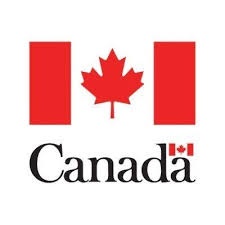
Grant and FundingClosed
Canada Public Transit Fund
Housing, Infrastructure and Communities CanadaSupports long-term public transit and active transportation infrastructure development

Wage Subsidies And InternsOpen
Industrial Research Assistance Program (IRAP) — Youth Employment Program (YEP)
National Research Council Canada (NRC)Money to hire a student
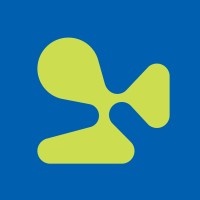
Researchers And FacilitiesPartnering and CollaborationWage Subsidies And InternsOpen
Mitacs Accelerate
MitacsConnect organizations with academia for research and innovation collaboration

Grant and FundingClosed
ISED — Artificial intelligence (AI)
Innovation, Science and Economic Development Canada (ISED)Supports testing innovative AI prototypes for Canadian government needs
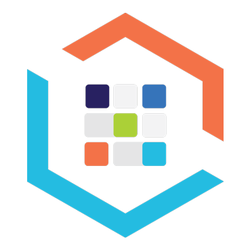
Grant and FundingOpen
Global Innovation Clusters
Innovation CanadaFinancial assistance to work in collaboration on innovation projects
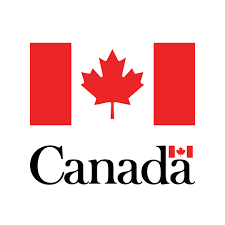
Grant and FundingOpen
IP for Business
Canadian Intellectual Property Office (CIPO)Intellectual property training, tools and expertise
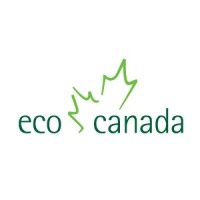
Wage Subsidies And InternsOpen
ECO Canada — Student Work Placement Program
ECO CanadaMoney to hire students for an environmental co-op

Grant and FundingOpen
Active Transportation Fund
Housing, Infrastructure and Communities CanadaSupports infrastructure projects for safer, more accessible active transportation
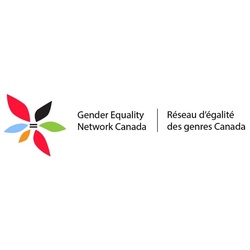
Partnering and CollaborationGrant and Fundingarchived
Equality for Sex, Sexual Orientation, Gender Identity and Expression Program
Women and Gender Equality Canada (WAGE)Supports equality initiatives for sex, sexual orientation, and gender identity
Sign up to our platform to access the Energy Innovation Program — Clean Fuels Call for Proposals information sheet for free
Get access to 4,000+ programs, practical guides, personalized alerts, and an AI assistant to support your grant applications.